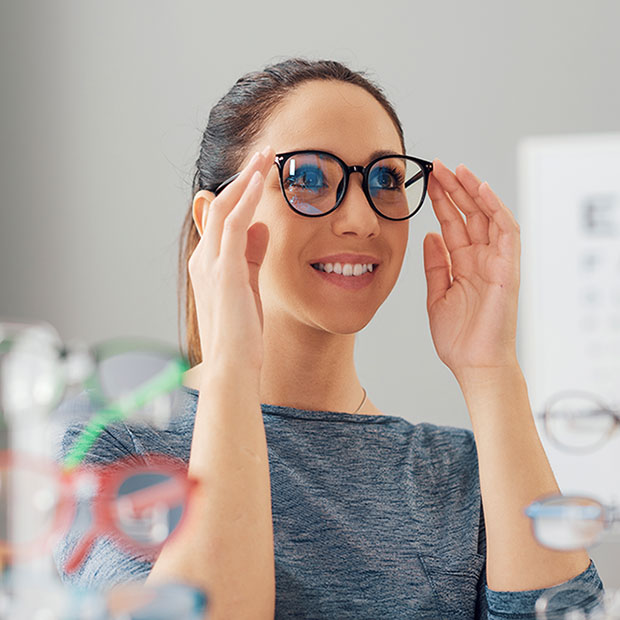
<h2>Getting used to wearing glasses for the first time? Here’s how to adjust with confidence.</h2>
If you’ve just received your first pair of glasses, congratulations; you’re about to experience the world in sharper detail. But even though clearer vision is a big win, adjusting to life with glasses can come with a few bumps along the way. This guide offers helpful tips to make the transition smoother and more comfortable.
<h3>Expect an Adjustment Period</h3>
<p>It’s completely normal for new glasses wearers to go through an adaptation phase. <strong>Your eyes and brain need a little time to get used to processing visual information differently</strong>, especially if your prescription is strong or includes correction for astigmatism.</p>
<p>During this period, you might feel slightly dizzy, experience mild headaches, or feel like the world looks a little “off.” These effects usually wear off within a few days, but if they persist longer than a week, check in with your eye doctor to make sure your prescription and lens alignment are accurate.</p>
<h3>Wear Your Glasses Consistently</h3>
Consistency is key to adjusting to your new eyewear. It may be tempting to keep taking them off when they feel unfamiliar or strange, but <strong>wearing your glasses as prescribed helps your eyes and brain adapt faster</strong>. If you only need them for specific tasks like reading or driving, stick to those situations at first, and gradually increase usage as you feel more comfortable.
<h3>Keep Them Clean for Clearer Vision</h3>
Smudged lenses can quickly lead to frustration. <strong>Clean your glasses regularly using a microfiber cloth and lens-safe solution (or a little water and gentle dish soap).</strong> Avoid paper towels, tissues, or your shirt, which can scratch the lenses. Having a cleaning kit on hand at home or in your bag ensures you’ll always be able to keep your view crystal clear.
<h3>Check the Fit</h3>
Glasses should fit snugly but not tightly. <strong>If they constantly slide down your nose, pinch behind your ears, or sit crooked, you’ll likely end up with discomfort or even headaches.</strong> Stop by your optician’s office for a quick adjustment if anything feels off. A proper fit not only feels better but also ensures your lenses are correctly aligned with your eyes.
<h3>Watch Out for Fog and Glare</h3>
New glasses wearers often notice fogging or glare, especially in certain environments. <strong>Anti-reflective and anti-fog coatings can make a big difference</strong>, so ask your eye care provider about your options if you’re dealing with these annoyances frequently.
<h3>Don’t Be Afraid to Ask Questions</h3>
There’s a learning curve to wearing glasses, and <strong>no question is too small</strong>. Whether you’re unsure how to clean them, worried about pressure on your nose, or curious about lens options, your optometrist and optician are there to help.
<h3>Your Eye Health Comes First</h3>
Glasses are an important part of your eye health journey, but they’re not the end of the story. <strong>Regular eye exams help monitor changes in your vision</strong> and ensure your prescription stays up to date.
<h3>Need Help Getting Started With Your New Glasses?</h3>
We’re happy to answer your questions, make adjustments, or offer guidance — just schedule a visit and we’ll make sure you’re seeing clearly and feeling great in your new specs.
<h4>We love when our patients love their glasses!</h4>
<h6><span style="color: #d9d9d9;">The content on this blog is not intended to be a substitute for professional medical advice, diagnosis, or treatment. Always seek the advice of qualified health providers with questions you may have regarding medical conditions.</span></h6>










